 Petzlover
Petzlover Schillerstovare is originated from Sweden but Tsvetnaya Bolonka is originated from Russia. Schillerstovare may grow 34 cm / 14 inches higher than Tsvetnaya Bolonka. Schillerstovare may weigh 21 kg / 47 pounds more than Tsvetnaya Bolonka. Both Schillerstovare and Tsvetnaya Bolonka has almost same life span. Schillerstovare may have more litter size than Tsvetnaya Bolonka. Schillerstovare requires Low Maintenance. But Tsvetnaya Bolonka requires Moderate Maintenance
Schillerstovare is originated from Sweden but Tsvetnaya Bolonka is originated from Russia. Schillerstovare may grow 34 cm / 14 inches higher than Tsvetnaya Bolonka. Schillerstovare may weigh 21 kg / 47 pounds more than Tsvetnaya Bolonka. Both Schillerstovare and Tsvetnaya Bolonka has almost same life span. Schillerstovare may have more litter size than Tsvetnaya Bolonka. Schillerstovare requires Low Maintenance. But Tsvetnaya Bolonka requires Moderate Maintenance
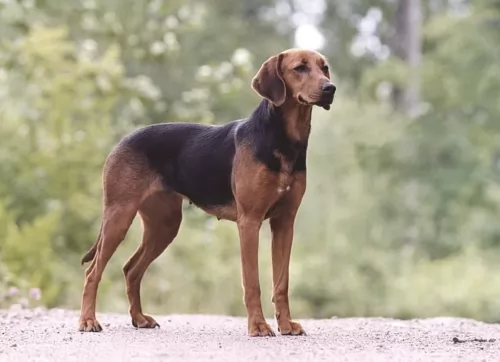 The Schillerstövare originated in Sweden, being named after a Swedish farmer, Per Schiller. After he died, the dog was named Schillerstövare in 1907, and was Sweden's first native dog breed.
The Schillerstövare originated in Sweden, being named after a Swedish farmer, Per Schiller. After he died, the dog was named Schillerstövare in 1907, and was Sweden's first native dog breed.
The Swedish Kennel Club recognised this dog in 1907 and it is also recognised by the Federation Cynologique Internationale as well as a number of minor kennels and dog clubs.
The dog has always been used as a hunting dog and the English Foxhound is the e foundation for this breed.
 It is believed that the dog’s ancestors are the Toy Poodle, Pekingnese, Bichon Frise and Shih Tzu. The Russian Tsvetnaya Bolonka has also become more well known since the British royal couple, Willam and Kate, have them as pets.
It is believed that the dog’s ancestors are the Toy Poodle, Pekingnese, Bichon Frise and Shih Tzu. The Russian Tsvetnaya Bolonka has also become more well known since the British royal couple, Willam and Kate, have them as pets.
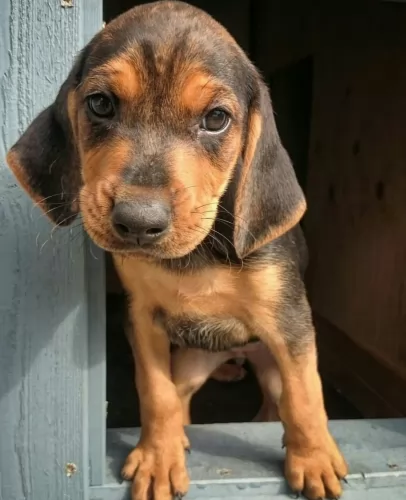 The Schillerstövare is a medium to large sized dog. They’re athletic and muscular.
The Schillerstövare is a medium to large sized dog. They’re athletic and muscular.
Standing at between 53–61cm in height and weighing in the region of 18–25kg, the coat of the dog is fairly short and harsh, with the color being black and tan.Sometimes you’ll see some white markings on the chest and paws.
The head is domed, the eyes brown, bright and alert and the ears of the dog are broad, medium length and floppy. The long tail is carried low or held out when running or alert.
If you allow your Schillerstovare to have puppies, you can expect between 3 to 7.
The Schillerstovare is a calm dog but he can get petty lively when there’s a game to be had. He gets on well with well disciplined children who have been taught to be kind and respectful to animals. He also gets on well with pets in the home. Just like with most other dogs, he will need to be trained and socialized as he is a strong willed, confident, dominant dog.
He is friendly and active but will be somewhat reserved around strangers.These dogs will require a lot of exercise and will need quite a bit of space too. They aren't well suited to small properties in the city. He will need a daily walk but also a chance to get off his leash and run free in the park. Other forms of exercise such as hikes, ball game and swimming will delight him.
 The Tsvetnaya Bolonka is a small dog standing at 22 – 27cm in height and weighing between 2 and 4kg. He has been developed to be a companion dog.
The Tsvetnaya Bolonka is a small dog standing at 22 – 27cm in height and weighing between 2 and 4kg. He has been developed to be a companion dog.
The long coat of the dog is wavy or curly and is a grey color, brown, red, white or black. The males have a beard and mustache.
Allergy sufferers appreciate that the dog doesn’t shed but the coat will need to be brushed to prevent matting. The ears are medium length and the tail curls up over the back.
These dogs are sturdy, happy, social, playful little dogs with a loving, loyal temperament. They’re balls of fun and make super playmates of disciplined children who have been taught to be kind and gentle with animals.
They are well balanced, amicable dogs with a streak of independence. They’re intelligent too and will respond well to training and socialization.
He isn’t aggressive and isn’t a yapper either. He is a friendly dog, even with strangers but he can still prove to be a good watchdog. Small and compact, he can do well in the countryside or the city.
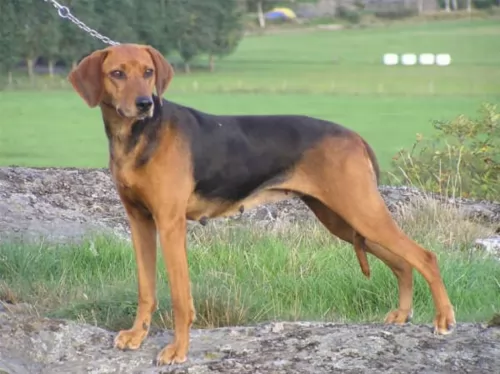 Schillerstovares are social, loving, friendly, loyal dogs who enjoy being around their human family. He’s going to need a lot of exercise, both mental and physical to keep him from boredom and frustration.
Schillerstovares are social, loving, friendly, loyal dogs who enjoy being around their human family. He’s going to need a lot of exercise, both mental and physical to keep him from boredom and frustration.
He will rely on you for at least a daily walk. He is strong-will and confident and will do well in a family where they are active and where they are firm, patient, kind and consistent in their behaviour towards him because then he ticks all th right boxes for being a splendid pet.
 The Tsvetnaya Bolonka is a true companion being even-tempered, intelligent and friendly. He has been specifically developed as a companion dog whether you live in the city or the countryside.
The Tsvetnaya Bolonka is a true companion being even-tempered, intelligent and friendly. He has been specifically developed as a companion dog whether you live in the city or the countryside.
He gets on well with children and with other pets in the home and even towards strangers. Just remember that wherever you choose to live with your sweet little pet, he will still need regular exercise to remain the feisty, happy little dog he is.
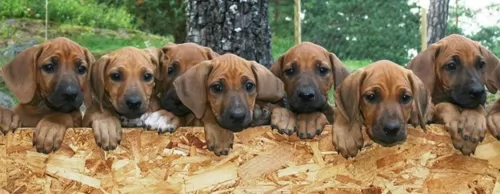 Even though your Schillerstovare is a healthy dog breed, hip dysplasia is a common dog disease that many dogs get.
Even though your Schillerstovare is a healthy dog breed, hip dysplasia is a common dog disease that many dogs get.
This is a skeletal disease when a dog’s hip joints become partially dislocated. It can be very difficult for your dog to get around, and he can also develop arthritis. It gets very sad when your dog doesn’t even want to participate in games anymore.
 This breed may get some of the typical small-dog health conditions. These can be things such as dental problems, obesity and Patellar Luxation.
This breed may get some of the typical small-dog health conditions. These can be things such as dental problems, obesity and Patellar Luxation.
Small dogs often have problems with their knees, and patellar luxation is a common orthopedic condition for small dogs. You’ll see your dog walking on 3 legs.
A luxated kneecap can move out of place, but in some more serious instances, it can dislocate completely. Treatment will require a visit to the vet. Sometimes surgery is required.
Small dogs are more prone to dental disease than large dogs. Tartar and plaque form, there is gum recession, and loss of teeth is common with these little dogs.
Check inside his mouth regularly. Brushing the teeth can be of value to the dog and you get special canine dog and toothpaste. A tooth infection can be serious for your pet and cause him to have toxins circulating in the bloodstream that can make him sick.
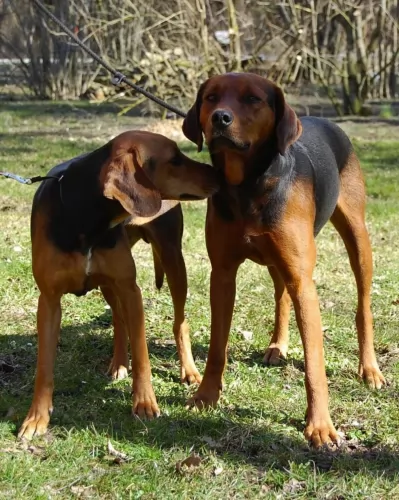 With his short coat, the Schillerstovare is considered a low maintenance dog and requires a minimal amount of grooming. Brushing should be done twice a week to remove loose hair. The harsh outer coat seems to repel dirt and dust.
With his short coat, the Schillerstovare is considered a low maintenance dog and requires a minimal amount of grooming. Brushing should be done twice a week to remove loose hair. The harsh outer coat seems to repel dirt and dust.
Trim your pet’s nails, check inside his ears for signs of redness, make sure his eyes are bright and clear and make sure he doesn’t have any unusual lumps on him.
Make sure his vaccines are up to date to avoid deadly canine diseases. Take him to the vet when you suspect he isn’t his normal self.
Dogs, just like humans, do well on good, nutritious diets. Feed a human lots of junk food and sweets and they’ll grow up to be obese and unhealthy. That's exactly how it is with dogs too. Some of the best commercially manufactured dog foods are convenient and they can be good if you look at the top brands. Look for ones that cater for your dog’s age, size, breed and activity levels. This dry kibble can be made more inviting for your pet when you include some homemade food.
Dogs just want simplicity so that they don’t battle with digestive problems. Boiled chicken, sweet potatoes, brown rice or pasta, carrots and spinach will be wonderful for him when you chop the food up and add it into the dry kibble twice a week. See his tail wag and his brown eyes light up when he smells this treat. Some raw meat added up occasionally will also contribute to your pet’s heath.
Make sure he is never without a constant supply of fresh, cool water.
 These little dogs will need a walk each day. They also love all sorts of games both indoors and outside.
These little dogs will need a walk each day. They also love all sorts of games both indoors and outside.
Brush the hair regularly to avoid matting. Many people tie the hair around the face into a ponytail. If the hair becomes dirty, it can be gently shampooed with a mild, natural shampoo and conditioned. The wet hair will require a wide-tooth comb to comb the hair.
Feed your dog the best dry kibble that there is. Check the packaging and make sure the ingredients are the best, full of vitamins and minerals. Try to give him some tasty home-made food such as boiled chicken, brown rice and vegetables. Remember to chop it up very finely. Never give your dog foods such as chocolate, popcorn, peanuts, and spicy food. It can upset his stomach. Make sure he has constant access to fresh, cool water.
Get your little pet to the vet if he shows signs of illness and make sure his vaccines are up to date to avoid deadly canine illnesses.